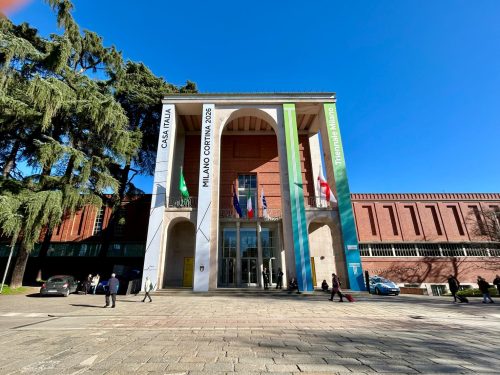News
Share on
Our country, according to a note from the Confindustria Study Centrehas one of the most sustainable economies in the advanced world in terms of CO2 emissions0.12 kilograms per dollar of GDP: this is one third of the G20 average, in Europe only France and the UK do better. We are 17th in the EU in terms of emission intensity, despite being the second largest manufacturer. Resource productivity is high, 3.6 euro per kilogram against an EU average of 2.2, and energy productivity the best among industrial powers, 11.8 euro per kilogram oil equivalent. We are also a leader in recycling, with thecircular economy worth 2.7% of the GDP and 613,000 employed.
"As is often the case, Italian companies have turned difficulties into responsiveness," said Lara Pontivice-president in charge of environmental transition e ESG targetsin an interview with Repubblica Business & Finance. "The fact that we have no raw materials and pay costs of theenergy higher than their competitors has pushed them towards a more efficient use of resources'. Between 2014 and 2023, the emission intensity of manufacturing dropped by 17.1%, the productivity energy increased by 36% in 20 years. The surge in energy prices following the war in Ukraine pushed companies to even greater efficiency by necessity. See thesteelthe emblem of the 'hard-to-abate' sector, where Italian manufacturing is almost completely electrified and fed by ferrous scrap. More than 70% of emissions now come from four sectors that account for just 15% of manufacturing value added - non-metallic minerals, petroleum derivatives, chemicals and metallurgy - and yet have reduced their missions more than foreign peers.
However, 'Italy's production reality is very diverse in terms of areas and size,' added Lara Ponti. 'There are strategic sectors without which our dependence on foreign countries would widen, where the technologies to decarbonise are lacking, so the cost is very high. And then there are the small companies, in Italy over 95%, for which the bureaucratic burden is really onerous. We agree with the European objectives, the problem is how it was decided to get there, without taking into account the differences between countries and without assessing the relationship between the costs and benefits of the rules. Ponti is a certified benefit company, a process that we have managed all on our own, but when the European directive on sustainability reporting came along we couldn't deal with it on our own, there are hundreds of generic and other sector-specific indicators. Can you imagine our suppliers, many of them small?".
On Clean Industrial Dealto reconcile decarbonisation with the industrial revitalisation of Europe, and the Omnibus reducing the bureaucratic burden of the various directives on the sustainabilityespecially for the SMEsVice-President Ponti continued: 'Unbureaucratisation is the most concrete part, while the Clean Industrial Deal for now is a declaration of intent, it recognises that there is a need for an overhaul, but it is not enough. There is a lack of measures on sustainability and decarbonisation that take into account the context of global competition that companies face. We need to understand what will be done and when. The Commission must act now because the US and China are running too fast'.
Accompanying all companies in the transition process is the meaning of the proposals in support of the circular economy that Confindustria will present in Brussels, now that the Commission is preparing a new Circular Economy Act. "The first is to simplify and harmonise the European framework: fewer and clearer rules. The second is to support research, with fast authorisation processes for new applications. The third is for the public sector to reward circular products in its purchases'. Sustainability and circularity, for a resource-poor Europe, mean competitiveness and security, while the rest of the world is in danger of abandoning the sustainability goals on which we are already lagging behind. "I don't think that in Italy and Europe there will be a regression," Ponti concluded, "on the one hand because the topic of sustainability is very much felt by the new generations, and on the other hand because the companies that have taken this path by investing see the benefits.




